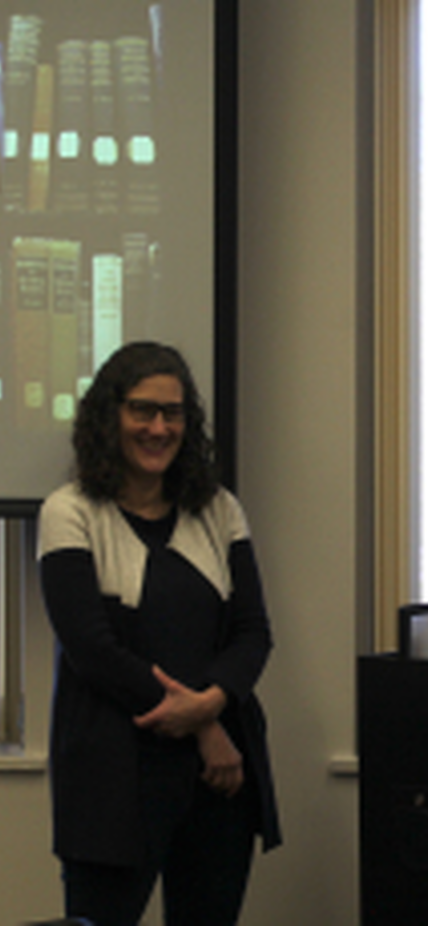University of Maryland (UMD) Professor Sarah Penniston-Dorland and Carnegie Staff Scientist Peter van Keken presented a workshop on the subject of academic teaching. Penniston-Dorland has over 15 years of experience as a Professor at UMD and van Keken had 21 years of experience at the University of Michigan prior to joining Carnegie.
Large Intro Courses
Large public universities can have very large intro courses (~500 students). Do not be afraid of teaching intro or core courses. Intro courses (which generate money for the university) are very important to the universities as they bring in the majors and can be repeated each year. Make them interesting to attend. Developing specialized courses means a lot more prep work. Finding a course you can offer every year is optimum. You can ask for previous syllabuses. Make use of existing resources (i.e., rock samples that are already available, textbooks, on-line resources). Some universities also have a Center for Research on Learning & Teaching (i.e., University of Michigan). Carleton College has a very good Science Education Resource Center (SERC). UMD presents a week-long summer Early Career Faculty Workshop for early faculty members.
Teacher's Responsibilities
The breakdown of a professor's responsibilities is usually 40% teaching and 40% research, followed by 20% service.
Teaching duties can be 2/1 (2 courses in 1 semester) or 1/1 (one semester, one course). Service includes being a journal article reviewer or participating in various committees, i.e., library or curriculum committees. It is important to negotiate time with the department's Chair for setting up your lab or to request start-up funds for supplies and textbooks. You can teach a 1-credit or 5-credit class that includes lab time. Find time to observe as a junior faculty member, and ask a senior lecturer to come sit in your class to evaluate your teaching.
Teaching Assistants (or TAs) can be assigned to help with grading or possibly teach one lecture. This provides teaching experience for the TAs. You provide them with guidance and experience. TAs also provide invaluable advice.
How you'll be evaluated
You will be evaluated on your teaching. You should have a teaching statement and philosophy already in place.
Your students will evaluate your teaching skills, so let them know you take their comments seriously and that you will see their evaluations. Evaluations inform the Chair which teachers are good. You could ask your students mid-course for an evaluation of your teaching.
Try not to talk too fast when lecturing, and use the textbook as a resource, not for a word-for-word lecture. Provide your students with online notes, but not sections of the textbook, which they already have. Take a videotape of yourself teaching to see how you are teaching, your body language, speed of talking, etc.
It goes both ways
RESPECT, a 2-way street, is an important factor in your success as a Professor. Teachers should have humility and know that life happens, you can build in extra credit allowances. Do not change the rules mid term, which is part of respect and clarity. Be consistent and fair. The drop period for a class is usually the first week, so give your students a sense of the difficulty of the course before the drop period ends. If you plan to be qualitative, let your students know ahead of time.
Final message: Know yourself and be yourself. Do not emulate others.
Additional Resources
provided by Librarian Shaun Hardy:
- Journal of Geoscience Education (curriculum ideas, lab experiments, teaching methodologies, etc.)
- The National Association of Geoscience Teachers has teaching resources and geoscience literacy information
- Print and online books in the BBR library:
- How to succeed as a scientist: from postdoc to professor,
- Making the right moves: a practical guide to scientific management for postdocs and new faculty,
- Advice for new faculty members: nihil nimus,
- How people learn: brain, mind, experience, and school.
